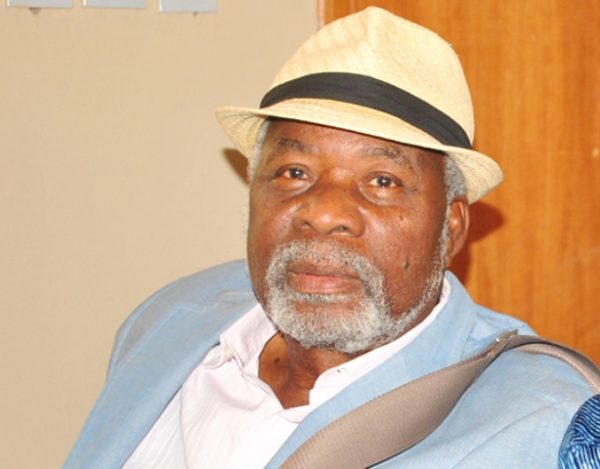Nigerian literary scholar Abiola Irele passed away last month. He was 81 years old when he died and had led a life dedicated to the study of African literature.
The flood of condolence messages and tributes on social media is a testament to the man’s greatness as scholar, a colleague and a mentor. Wole Soyinka, one of Irele’s close friends, published a beautiful tribute poem titled “Olohun-Iyo” in Premium Times. [read here if you missed it.]
But one of our favorite tributes so far is a Facebook post made by Prof. Ato Quayson. Quayson, who is now a prominent scholar, recalls being a graduate student in the ’90s and meeting Irele at the University of Ibadan. His tribute speaks to Irele’s greatness as a scholar, but it also reveals Irele’s nurturing spirit and his eagerness to help young scholars find opportunities and grow in their thinking.
***
“Something has fallen into my eye; when I wipe, it does not go. . .”
I first met Abiola Irele at the African Literature Association conference that was held in Accra in 1994. The year before I had spent some six weeks at the University of Ibadan, and there had made a number of great friends, among them Harry Garuba, who offered to introduce me to the Big Man. (Of Harry I will have to write another day to detail how he got us drunk on a prodigious amount of beer at a bukkateria and then proceeded to read to me a passage from Toni Morrison’s Song of Solomon. It was my first encounter with Morrison, and something that I shall never forget).
At the Accra conference Harry said he could take me to see Professor Irele, whom we could both espy a short distance away in the hotel gardens, in a beautiful yellow linen suit and surrounded by supplicants. My voice almost croaked with nervousness, but Harry insisted. So with profuse perspiration and much trepidation, I went to join the waiting circle for my turn to speak to the Professor. Harry was nowhere to be found when I turned around for reassurance! When it came to my turn, ‘Biola asked me: what can I do for you, young man? To which I replied that I was working on Nigerian literary history focusing on the Yoruba literary tradition and that his work was central to my argument. Gaining in confidence, I began to wax lyrical about how his own interpretation of the Yoruba tradition in light of TS Eliot’s own disquisition on tradition and the individual talent had been an eye-opener for me. He was quiet until I finished, and then said some encouraging words about the work I was doing.
What I had neglected to tell him in my breathless monologue, however, was that I had strong disagreements with both his and Eliot’s positions and that I was intent on mounting a robust critique in the writing up of the dissertation proper. I never heard from him again, until, that is, my book manuscript was sent to Indiana University Press by James Currey to explore the possibility of joint publication with them. Currey had already received two positive responses from two UK academics, but Indiana UP insisted on sending the manuscript to their own reviewer to test the value of my argument before deciding whether it was worthwhile to co-publish. And, you guessed it, they sent it to Abiola Irele! I was on tenterhooks for the three months or so that it took to hear back from their reviewer, but when it came it was very positive, with a strong recommendation that it be published. I was relieved, but more than that dumbfounded that he did not find a reason to defend himself in the extensive review that he wrote.
Some weeks later I received an email from him. He explained, very patiently, that the piece I had criticized dated from his early thinking on the question. The first time had been in an essay of 1967, with subsequent revisits until the early 1980s. He not only described to me the arc of his thoughts on the question but also sent me some out-of-print essays, with further recommendations on things to read to further strengthen my argument. I speak no hyperbole when I say that he was singlehandedly responsible for launching my career and the path that it subsequently took. In later years I spent countless hours talking with him about various things.
‘Biola became a friend, a mentor, and a confidante, who I loved and will miss very dearly. He was one of the most phenomenal mentors in the entire field of African Studies and never tired of speaking up for a younger scholar or advising a publisher, or otherwise being a stalwart curator of the best work in the field. Some of his own writings were classics in their own right. My personal favorites, apart from his magisterial The African Experience in Literature and Ideology, were his introductions to Amadou Hampaté Bâ’s The Fortunes of Wangrin, to Paulin Hountondji’s African Philosophy: Myth and Reality. I have read these many times just to marvel at how he did things with words.
May he join our fiercest advocates among the ancestors and continue there the work of illumination that he dedicated his illustrious life to.
May his soul Rest in Perfect Peace.
— Prof. Ato Quason
********
Post image via Dawn to Dusk News.









COMMENTS -
Reader Interactions